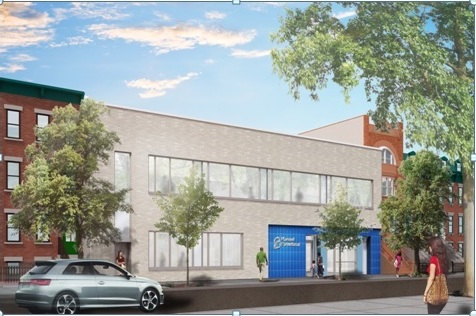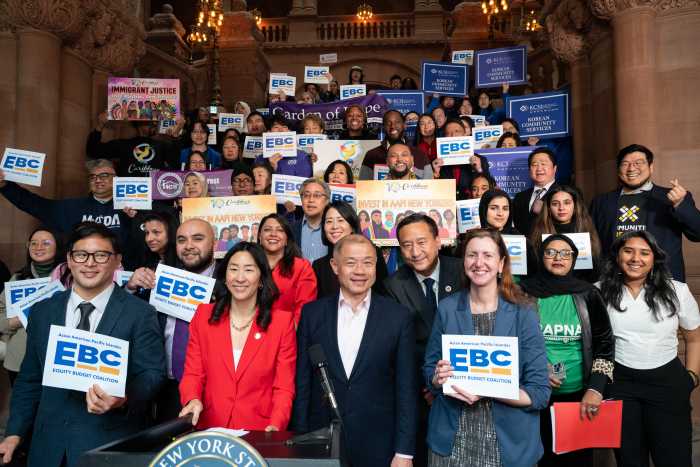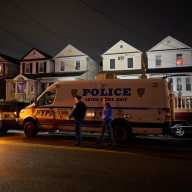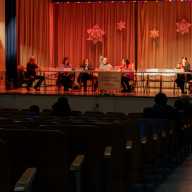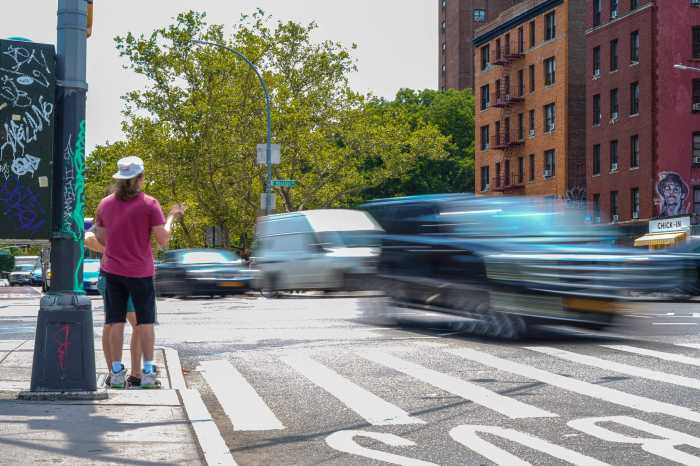Abortion access information and resources were shared during a presentation by the NYC Department of Health and Mental Hygiene at the Queens Borough Cabinet meeting on Nov. 5. Carmina Bernardo, the deputy director of provider partnerships at the health department, hosted the presentation and educated city residents about the NYC Abortion Access Hub.
The hub, which provides confidential help to residents in search of an abortion provider, launched in November 2022 just six months after the Supreme Court’s shocking Dobbs v. Jackson decision that revoked constitutional protection of abortion. The decision overturned the Court’s landmark 1973 Roe v. Wade decision that originally stated the Constitution protected the right to abortion, prior to the point of fetal viability.
A Pew Research Center survey conducted in April 2023 shows 62% of adults believe abortion should be legal in all or most cases, while only 3% say it should be illegal in all or most cases. Despite its overwhelming popularity, the nine Supreme Court justices issued their ruling in June 2022.
Bernardo said the health department quickly mobilized as millions faced losing access to abortion and launched the hub only six months after the ruling. She noted that since the hub went live three years ago, its staff has answered over 8,000 calls and 3,500 chats.
NYC Abortion Access Hub is open Monday through Friday from 8 a.m. to 6 p.m. and offers help to users in 170 languages. It currently has seven staff members, four of whom are navigators, to help direct calls and connect callers to abortion providers. It can be accessed on NYC.gov.
‘Accessible to all’
According to Bernardo, the health department runs three main abortion access initiatives that includes the hub, free medication abortion services at sexual health clinics and the Sexual and Reproductive Health Care Bill of Rights. The latter protects individuals from threats and discrimination when accessing sexual and reproductive healthcare services.
“Our goal is to make New York abortion services accessible to all, especially to vulnerable and marginalized communities,” Bernardo said. “We envision a world where abortion care is accessible to all people without barriers or stigma, and we connect abortion seekers to quality care and supportive resources that they need.”
New York State Law currently states that anyone can get an abortion for any reason up to 24 weeks of pregnancy, which is just before the end of the second trimester. Abortions are legal beyond 24 weeks only if the health of the mother or the pregnancy is at risk.
According to the Centers for Disease Control and Prevention, only 1% of abortions occurred after 21 weeks of pregnancy in the U.S. in 2022.
Individuals who call the hub are directed to navigators that ask questions such as what their preferred abortion method is, where they live, what borough they’d like to receive their services in, financial circumstances and insurance status in order to find services that best meet their specific needs.
“We have a public health approach, meaning it’s a one door or single point of entry for abortion access,” Bernardo emphasized. “It removes barriers people often face when trying to access abortion — especially if they need financial assistance, they must travel from another state or just do not know where to go because of all the misinformation, disinformation, scrutiny and stigma surrounding abortion.”
The hub educates users about “fake” clinics that pose as crisis pregnancy centers but instead attempt to stop individuals from receiving abortion care. A map is available on the website to help users identify which locations offer licensed health care providers and which are funded by organizations that are against abortion.
A chat box feature was added in May 2023 and is available to users in English and Spanish. About 25 percent of callers are from out-of-state, and of those out-of-state callers, most of them come from Texas, Florida, Georgia and New Jersey.
According to Bernardo’s presentation, callers generally earn less than $25,000 per year, identify as Hispanic or Latino, are between 18-29 years of age, live in NYC, are less than three months pregnant, and used Google to find the hub. Because of this last statistic, Bernardo said the department has invested in search optimization to ensure individuals searching for services are directed to the health department and its partnered providers.
The health department partners with about 30 clinical partners with over 40 referral sites, including public and private hospitals, sexual health clinics, independent providers and telehealth providers that can provide consultations and prescribe a medication abortion.
“Because they are a referral network that we want to continually build relationships with, we do a lot of hub partner engagement,” Bernardo said.
She said the team has one-on-one meetings with providers to share hub data and feedback about callers’ experiences, as well as receive updates from providers about staffing, funding and changes to patient protocols. The health department also works on a range of issues relevant to providers such as immigrant access to healthcare, clinic safety and security, and stress management.
Individuals seeking clinics that provide medication abortion for free on site can visit any of the four DOHMH sexual health clinics, which are located in Morrisania, Jamaica, Central Harlem and Fort Greene. The initiative was originally launched in 2017, but it re-launched with expanded services following the hub’s introduction in November 2022.
These clinics also provide rapid testing for sexually transmitted diseases and HIV pre-exposure prophylaxis continuity of care, which is a prevention strategy that involves taking daily antiretroviral medications to reduce the risk of getting infected.
According to the health department, sexually transmitted inflections, such as gonorrhea, syphilis and chlamydia are common and curable, and should be treated quickly to prevent long-term health effects such as infertility and chronic pelvic pain.
The clinics offer health services to anyone who is 12 or older, regardless of immigration status or parental consent. Experts say adolescent access to sexual health services is crucial to help promote better health outcomes and reduced rates of teen pregnancy. The Journal of Adolescent Health also emphasizes the need for sexual health care access to protect children that are sexually abused.
The Sexual and Reproductive Bill of Rights can be accessed on the city’s website and guarantees access to care while in NYC, regardless of where an individual lives. This means care is also guaranteed to citizens who live out-of-state and undocumented immigrants.
For more information about services, visit NYC.gov/DOH. For more information and statistics about abortion, visit PewResearch.com.

